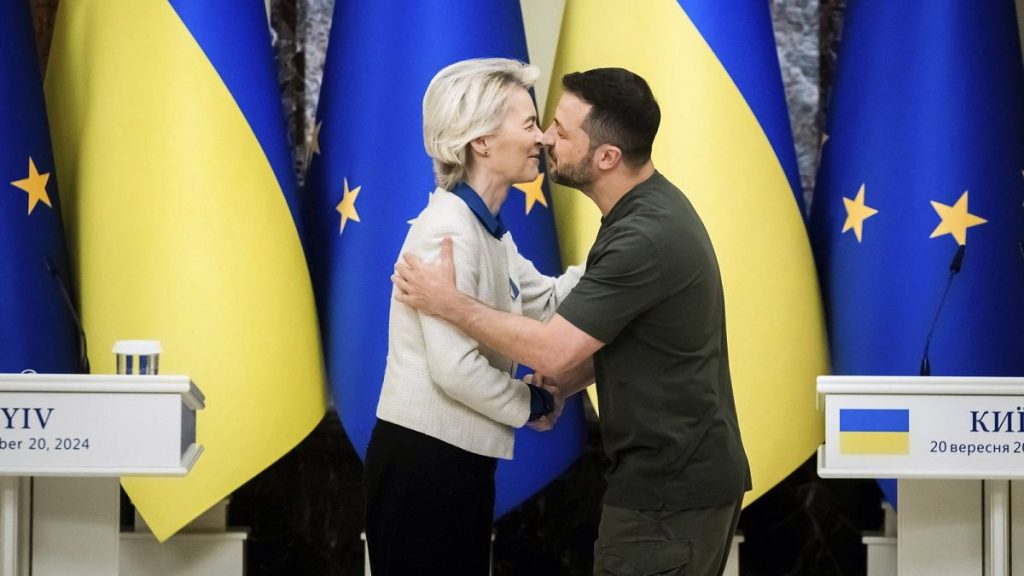The European Union has pledged to provide a €35 billion loan to support the Ukrainian economy and military as the country faces a renewed Russian offensive. European Commission President Ursula von der Leyen announced the loan during a visit to Kyiv, emphasizing the need to keep the lights on, people warm, and the economy running as Ukraine fights for survival. The loan is part of a larger $50 billion plan promised by G7 allies, with the EU contributing the largest share. However, technical talks between EU and US officials have stalled progress, with concerns about Hungary potentially derailing the initiative in the future.
The EU’s loan proposal aims to ensure long-term predictability for sanctions on Russia’s immobilized assets and reduce the financial burden on Western allies. The lack of consensus among member states makes it difficult for Brussels to provide the necessary legal assurances to the US Congress for additional funding approval. In light of escalating conflict and growing fears of a humanitarian crisis in Ukraine, the Commission is increasing its participation to up to €35 billion to address the urgent situation. The hope is that other G7 allies will also contribute to fulfill the €45 billion pledge made in June.
With the majority of Russia’s frozen assets located in EU territory, the Commission plans to establish a special mechanism to channel these profits for repayments. Each G7 ally will contribute based on the funds raised for Ukraine, allowing for a more equitable distribution of costs. Von der Leyen’s proposal for the loan requires a qualified majority by member states, eliminating the threat of a Hungarian veto. The European Parliament will also play a role in the approval process, aiming for disbursement throughout 2025. The proposal also includes renewing sanctions on assets every 36 months, subject to unanimity.
In addition to the loan, the EU has announced a €160 million assistance package for Ukraine, with a majority backed by Russia’s frozen assets. This package will be used to repair power plants, boost renewable energy capacity, and support Ukraine as it faces challenging circumstances. The EU’s commitment to helping Ukraine in its time of need underscores the importance of international solidarity and cooperation in addressing conflicts and humanitarian crises. By working together, the EU and its allies aim to provide critical support to Ukraine as it strives to overcome the challenges posed by the ongoing conflict with Russia.


